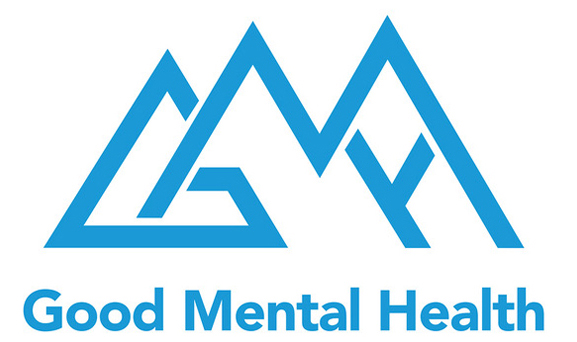While depression is more common in women, with an estimated 19 million U.S. women experiencing depressive illnesses compared to an estimated 6 million U.S. men, both genders suffer from the debilitating consequences of depression-related symptoms every year. It is estimated that depression affects 20-25% of Americans aged 18 and above, and that suicide results in 38,000 deaths in a given year.
38,000 deaths. Let that sink in.
Dealing with depression is like having malware running in the background of our lives at all times, draining us of precious energy and resources we could be using to achieve our goals and dreams.
It robs us of our potential, zaps our ability to connect and focus, and for nearly 40,000 people in the U.S. alone, the results are fatal.
It’s time we look at the root cause of depression and the steps we can take towards healing.
The root cause of depression is anger.
Yes, there is a biochemical component to depression; a chemical imbalance in the brain which may require anti-depressant medications to be effectively treated. However, it is underlying and long-held feelings of anger which bring about this biochemical imbalance in the first place. The manifestation pattern goes like this:
Unexpressed anger —> Changes in thought patterns —> Changes in behavior —> Changes in brain chemistry—> Symptoms of depression.
It is the accumulated changes over time brought about by repressed emotion which results in the worsening symptoms of depression, and not the other way around.
Children are not “born with” depression. Depression develops due to the accumulation of unexpressed emotional pain. (This is a great book on this topic which provides more insight*).
This is good news for us because, by addressing our underlying feelings of anger, our outward symptoms of depression can change.
We have the ability to rid ourselves of the malware and fully reclaim our lives.
Depression is anger turned inward. Aggression is anger turned outward.
There are over three times the number of women affected by depression than men. Why is this the case?
The way in which depression is expressed relative to gender is related to the traditional gender roles we were taught as children. Whereas women are taught to be nurturing, pleasing, and to not show anger, the traditional male gender role teaches just the opposite. Men are expected to be tough, fierce, and to express anger readily. As a result, women tend to internalize their anger, holding it within themselves, as opposed to men who more commonly express their anger through physical force or aggression.
Both of these patterns are maladaptive expressions of what is a normal human emotion. Human beings are going to experience anger. It is a fact of our species. However, it is the inability to express this anger in a healthy way which leads to the physical and mental manifestations we identify as depression.
Which also explains why, since women are taught from an early age to repress their anger much more than are men, we see much higher rates of “depression” in women.
So, if we recognize that anger is the root cause of depression and that it is our inability to express anger in a healthy way which is making us depressed, then it would make sense that the healthy expression of emotion, and anger in particular, is going to be our path toward healing.
So, how to express anger in a healthy way? Many methods exist, but the following are five tips that I personally recommend:
5 Tips for Expressing Anger:
Tip 1: Whack a pillow. From an early age, children are taught to control their emotions. From not mouthing off at the dinner table to not hitting back when another kid walloped us on the playground, we have been repressing anger all our lives. Sometimes the best release for repressed anger is a physical one. When my son was small, we would whack a pillow and scream into the bed spread until he felt better. As he got older, “whack a pillow” turned into kickboxing, using gloves and targets for a good anger release session. As he grew into the strapping young man he has become, “whack a pillow” morphed into legit martial arts training (he’s working on his red belt now). Adults often need the same physical release that children do, whether it’s screaming alone in the car or beating the hell out of the heavy bag at the gym, the physical release of anger doesn’t have to be scary or violent to yield positive results.
Tip 2: Write it out. We must allow ourselves to express how we feel in a safe space. We are accustomed to repressing our anger because we realize that expressing anger to say, our boss, is often not in our best interests. That’s why a journal is oftentimes a safe bet. Your journal is a safe, private place to work out how you’re feeling about anything and everything. The only rule for a journal is that there are no rules. The thoughts and feelings you express in your journal can be so toxic, so hurtful, so outrageous, that they could destroy relationships and, more than likely, are not the way you will feel once you are no longer angry. When experiencing anger, emotions need to be expressed. If you’re worried about your journal being discovered one day, write out your feelings and then burn it. Compare this to writing a letter that is never sent. Your body will experience the emotional release whether or not you keep the evidence that you went through the process. But a word of caution: you have to actually go through the process. In order to gain the benefits, you have to do the work. You have to write it out.
Tip 3: Communicate effectively. This one is tough coming on the heels of tip 2 because, whereas tip 2 encourages you to write anything you want with the option of burning it later, tip 3 recommends that you stick up for yourself and speak your truth in a healthy way in the moment. This means expressing thoughts and feelings without letting our anger get the best of us. Remember, we can say anything we need to say if it is done respectfully and in love. A lot of healing can be gained simply by saying ‘No’ first. When we are able to create and defend our personal boundaries, we no longer feel used and exploited by others. We are no longer angry at other people or ourselves because we are able to protect ourselves in the moment, increasing our feelings of self-care. We become angry when it feels like other people are doing things to us. By communicating our boundaries effectively, we feel less anger and hurt because we are no longer victims. We have reclaimed our power and feel safe.
Tip 4: Give yourself permission to feel your feelings. We are spiritual beings having a human experience. We are not only allowed to feel our human emotions, we are required to. It is part of what we signed up for when we incarnated into this human life. We are not robots. Even if you were taught to stuff your feelings as a child and find yourself having difficulty accessing them as an adult, set the intention that you will allow yourself to feel the way you feel. Express your emotions in your journal. Express yourself in conversation with others in an assertive yet respectful way. Acknowledge how you are feeling within your own internal dialogue (i.e. the conversations we have with ourselves!) Whatever we do, we have to embrace the emotions we’ve been stuffing all our lives and finally allow ourselves to feel the way we feel.
Tip 5: Surround yourself with supportive people. Sometimes it’s our closest relationships that keep us sick, functioning poorly, and unable to reach our full potential. Past hurts from childhood involving parents, siblings, or childhood friends may have caused us to adopt a story about ourselves which no longer serves our highest good, and causes us to carry residual hurt and anger into adulthood. All of us can heal from past trauma, but first we have to stop allowing ourselves to be hurt. Make the decision to surround yourself with supportive people and limit contact with those who aren’t. Healthy relationships allow us to set our personal boundaries without fear of losing the other person. Healthy relationships allow us to speak our truth without judgment and shame. Healthy relationships allow us to communicate our emotions in healthy ways. If the people around you expect you to continue repressing your anger, you will not heal. As Jim Rohn said, “We are the average of the five people we spend most time with.” Let’s make sure they’re the right people.
Give yourself the gift of healing. I know you can do it. I believe in you!
Be well, friends.
Do you feel like you are in the exact right place? Read more about us here and find us on Facebook.



 Hi, I'm Diana Brummer a psychotherapist, writer, and coach in St. Johns, Florida. I love helping people thrive in their relationships and their lives. My hope is that you find the information in these articles educational and useful. Thank you for stopping by!
Hi, I'm Diana Brummer a psychotherapist, writer, and coach in St. Johns, Florida. I love helping people thrive in their relationships and their lives. My hope is that you find the information in these articles educational and useful. Thank you for stopping by! 
